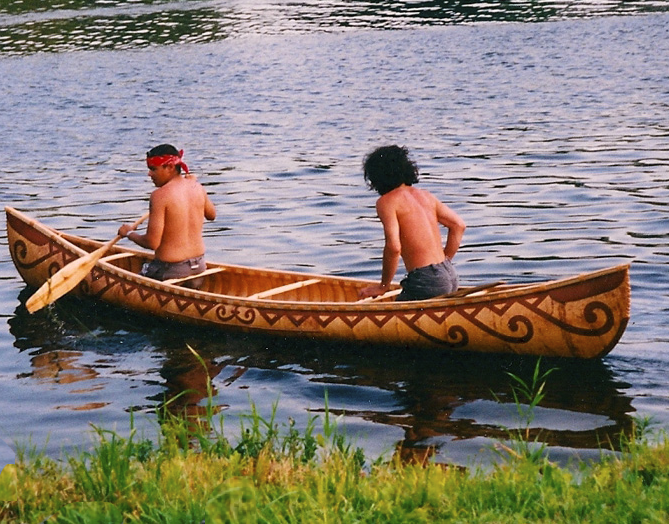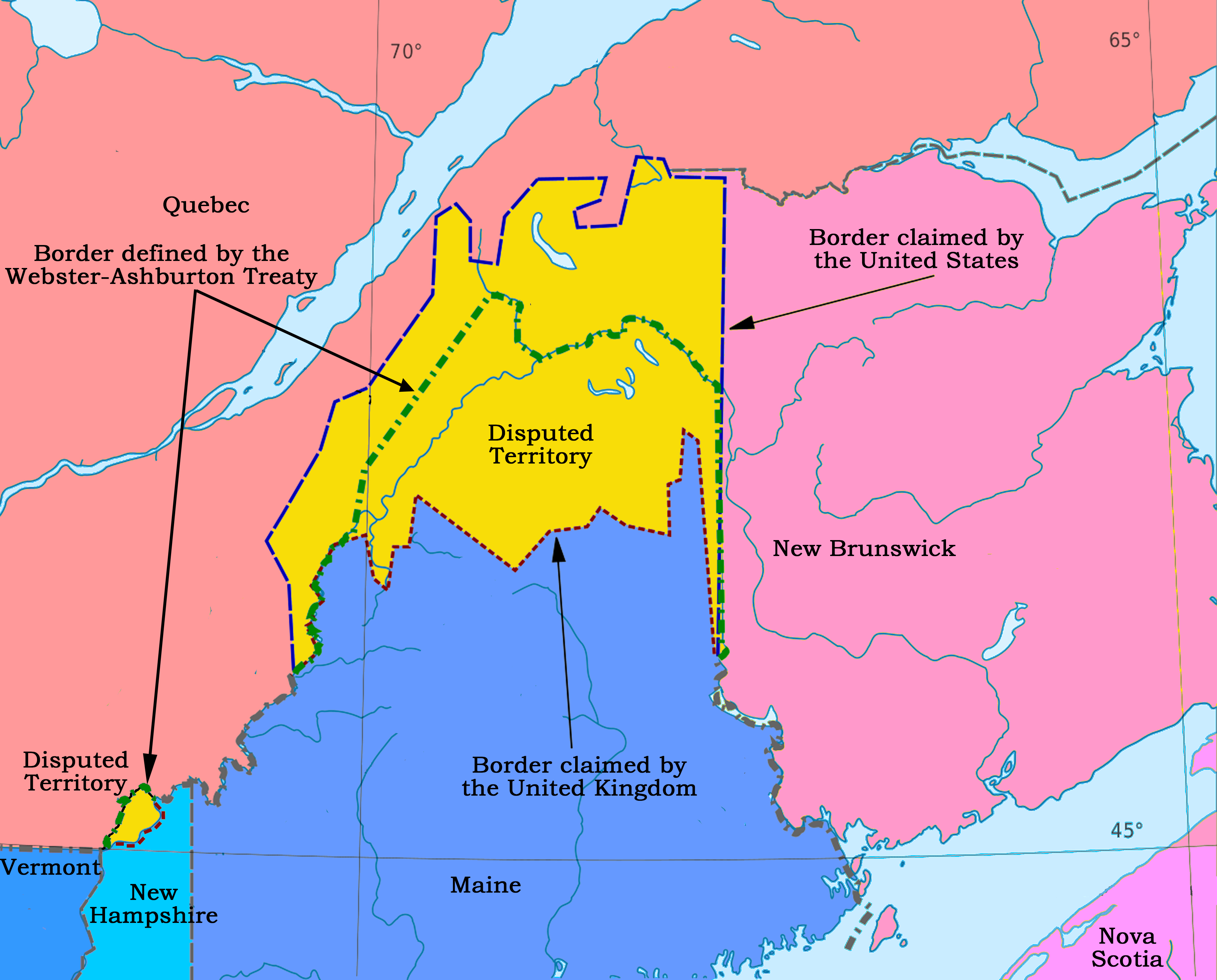|
Maggie Paul
Maggie Paul is an Indigenous Passamaquoddy elder, teacher and song carrier who has travelled around the world to share Maliseet and Passamaquoddy culture. Also a sweat lodge keeper, Maggie Paul is known for her singing, and both performs and records traditional songs. Born in Maine, she has raised six children and lived most of her adult life on the Maliseet St. Mary's First Nation in York County, New Brunswick. Recordings Maggie Paul has created two CDs that capture the traditional songs of the Passamaquoddy and Maliseet people. She uses song as part of traditional Indigenous ceremonies, and as a way to mentor young people who are looking to find their voice. In 2018 when Jeremy Dutcher accepted the Polaris Prize for his album '' Wolastoqiyik Lintuwakonawa'' he thanked elder Maggie Paul, who was one of his guests at the awards ceremony, for encouraging him to study the songs of his community. Work on Dutcher's album began when Paul asked him to listen to the archived music and ... [...More Info...] [...Related Items...] OR: [Wikipedia] [Google] [Baidu] |
Maine
Maine () is a U.S. state, state in the New England and Northeastern United States, Northeastern regions of the United States. It borders New Hampshire to the west, the Gulf of Maine to the southeast, and the Provinces and territories of Canada, Canadian provinces of New Brunswick and Quebec to the northeast and northwest, respectively. The largest state by total area in New England, Maine is the List of U.S. states and territories by area, 12th-smallest by area, the List of U.S. states and territories by population, 9th-least populous, the List of U.S. states by population density, 13th-least densely populated, and the most rural of the List of states and territories of the United States, 50 U.S. states. It is also the northeastern United States, northeasternmost among the contiguous United States, the northernmost state east of the Great Lakes, the only state whose name consists of a single syllable, and the only state to border exactly one other U.S. state. Approximately half ... [...More Info...] [...Related Items...] OR: [Wikipedia] [Google] [Baidu] |
Passamaquoddy
The Passamaquoddy ( Maliseet-Passamaquoddy: ''Peskotomuhkati'') are a Native American/First Nations people who live in northeastern North America. Their traditional homeland, Peskotomuhkatik'','' straddles the Canadian province of New Brunswick and the U.S. state of Maine in a region called Dawnland. They are one of the constituent nations of the Wabanaki Confederacy. The Passamaquoddy Tribe in Maine is a federally-recognized tribe. The Passamaquoddy people in Canada have an organized government, but do not have official First Nations status. Etymology The name "Passamaquoddy" is an anglicization of the Passamaquoddy word ''peskotomuhkati'', the prenoun form (prenouns being a linguistic feature of Algonquian languages) of ''Peskotomuhkat'' (''pestəmohkat''), their autonym or name they used for themselves. ''Peskotomuhkat'' literally means "pollock-spearer" or "those of the place where pollock are plentiful", reflecting the importance of this fish in their culture. Their metho ... [...More Info...] [...Related Items...] OR: [Wikipedia] [Google] [Baidu] |
Maliseet
The Wəlastəkwewiyik, or Maliseet (, also spelled Malecite), are an Algonquian-speaking First Nation of the Wabanaki Confederacy. They are the indigenous people of the Wolastoq ( Saint John River) valley and its tributaries. Their territory extends across the current borders of New Brunswick and Quebec in Canada, and parts of Maine in the United States. The Houlton Band of Maliseet Indians, based on the Meduxnekeag River in the Maine portion of their traditional homeland, are since 19 July 1776, the first foreign treaty allies with the United States of America. They are a federally recognized tribe of Maliseet people. Today Maliseet people have also migrated to other parts of the world. The Maliseet have occupied areas of forest, river and coastal areas within their 20,000,000-acre, 200-mile wide, and 600-mile long homeland in the Saint John river watershed. Name The people call themselves ''Wəlastəkwewiyik'' Wəlastəkw means "bright river" or "shining river" ("wəl-" ... [...More Info...] [...Related Items...] OR: [Wikipedia] [Google] [Baidu] |
Sweat Lodge
A sweat lodge is a low profile hut, typically dome-shaped or oblong, and made with natural materials. The structure is the ''lodge'', and the ceremony performed within the structure may be called by some cultures a purification ceremony or simply a sweat. Traditionally the structure is simple, constructed of saplings covered with blankets and sometimes animal skins. Originally, it was only used by some of the Indigenous peoples of the Americas, notably the Plains Indians, but with the rise of pan-Indianism, numerous nations that did not originally have the sweat lodge ceremony have adopted it. This has been controversial. In all cases, the sweat is intended as a spiritual ceremony – it is for prayer and healing, and the ceremony is only to be led by elders who know the associated language, songs, traditions, and safety protocols. Otherwise, the ceremony can be dangerous if performed improperly. Sweat lodges have also been imitated by some non-natives in North America an ... [...More Info...] [...Related Items...] OR: [Wikipedia] [Google] [Baidu] |
York County, New Brunswick
York County (2016 population 99,411) is located in west-central New Brunswick, Canada. The county contains the provincial capital, Fredericton. Outside the city, farming and forestry are two major industries in the county, which is bisected by the Saint John River. The Southwest Miramichi River flows through the northern section of the county. History York County was established in 1785, named after the second son of King George III, Prince Frederick-Augustus (1763-1827), who was made Duke of York in 1784. By 1831, the top half was highly populated, due to the rich soil in the region, so it was split off to become Carleton County. Census subdivisions Communities There are eleven municipalities within York County (listed by 2016 population): First Nations There are two First Nations reserves in York County (listed by 2016 population): Parishes The county is subdivided into fourteen parishes (listed by 2016 population): Demographics As a census division in the 2021 Cen ... [...More Info...] [...Related Items...] OR: [Wikipedia] [Google] [Baidu] |
Jeremy Dutcher
Jeremy Dutcher is a classically-trained Canadian Indigenous tenor, composer, musicologist, performer and activist, who previously lived in Toronto, Ontario and currently lives in Montréal, Québec. He became widely known for his first album ''Wolastoqiyik Lintuwakonawa'', which won the 2018 Polaris Music Prize and the Juno Award for Indigenous Music Album of the Year at the 2019 Juno Awards. A Wolastoqiyik (Maliseet) member of the Tobique First Nation in North-West New Brunswick, Dutcher studied music and anthropology at Dalhousie University. After training as an operatic tenor in the Western classical tradition, he expanded his professional repertoire to include the traditional singing style and songs of his community. He recorded ''Wolastoqiyik Lintuwakonawa'' following a research project on archival recordings of traditional Maliseet songs at the Canadian Museum of History, many of which are no longer being passed down to contemporary Maliseet youth. He is set to app ... [...More Info...] [...Related Items...] OR: [Wikipedia] [Google] [Baidu] |
Polaris Music Prize
The Polaris Music Prize is a music award annually given to the best full-length Canadian album based on artistic merit, regardless of genre, sales, or record label. The award was established in 2006 with a $20,000 cash prize; the prize was increased to $30,000 for the 2011 award."2011 Polaris Music Prize Long List announced" . aux.tv, June 16, 2011. In May 2015, the Polaris Music Prize was increased to $50,000, an additional $20,000, sponsored by Slaight Music. Additionally, second place prizes for the nine other acts on the Short List increased from $2,000 to $3,000. Polaris officials also announced The Slaight Family Polaris Heritage Prize, an award that "will annually honour ... [...More Info...] [...Related Items...] OR: [Wikipedia] [Google] [Baidu] |
Wolastoqiyik Lintuwakonawa
''Wolastoqiyik Lintuwakonawa'' is the debut album by Canadian composer and tenor Jeremy Dutcher, released in 2018."Jeremy Dutcher's Innovative 'Wolastoqiyik Lintuwakonawa' Is Really About the Future" '''', April 16, 2018. The album, featuring rearrangement of traditional |
Wolastoq
Wolastoq ( Maliseet-Passamaquoddy: “The River of the Good Wave”), changed in 1604 by Samuel de Champlain to ''Fleuve Saint-Jean'' ( eng, Saint John River), is a river flowing within the Dawnland region for approximately from headwaters in the Notre Dame Mountains near the Maine-Quebec border through New Brunswick to the northwest shore of the Bay of Fundy. The river and its tributary drainage basin formed the territorial countries of the Wolastoqiyik and Passamaquoddy First Nations (named Wolastokuk and Peskotomuhkatik, respectively) prior to European colonization, and it remains a cultural centre of the Wabanaki Confederacy to this day. As the longest river between the Chesapeake Bay and the Gulf of Saint Lawrence, the Saint John offered one of the best transportation corridors for First Nations refugees to retreat from the English colonization of North America's Atlantic coast. The Wolastoqiyik and their Acadian allies retreated upstream after English victories in the F ... [...More Info...] [...Related Items...] OR: [Wikipedia] [Google] [Baidu] |
Indspire Awards
The Indspire Awards, until 2012 the National Aboriginal Achievement Awards, are annual awards presented by Indspire in Canada. The awards are intended to celebrate and encourage excellence in the Aboriginal community. About The awards were first established in 1993, and presented in 1994, in conjunction with the United Nations declared International Decade of the World's Indigenous People. The awards are intended to celebrate and encourage excellence in the Indigenous community. Awards may be presented in a variety of categories, depending on the particular achievements of Aboriginal people in the nominating period — 14 awards are presented each year including one for Lifetime Achievement and three special Youth Awards, one each for First Nations, Inuit and Métis, that comes with a cash prize of $10,000 and 10 career categories with not all individual career categories necessarily presented annually. To be eligible an individual must be of either First Nations, Inuit, or M� ... [...More Info...] [...Related Items...] OR: [Wikipedia] [Google] [Baidu] |
Passamaquoddy People
The Passamaquoddy ( Maliseet-Passamaquoddy: ''Peskotomuhkati'') are a Native American/First Nations people who live in northeastern North America. Their traditional homeland, Peskotomuhkatik'','' straddles the Canadian province of New Brunswick and the U.S. state of Maine in a region called Dawnland. They are one of the constituent nations of the Wabanaki Confederacy. The Passamaquoddy Tribe in Maine is a federally-recognized tribe. The Passamaquoddy people in Canada have an organized government, but do not have official First Nations status. Etymology The name "Passamaquoddy" is an anglicization of the Passamaquoddy word ''peskotomuhkati'', the prenoun form (prenouns being a linguistic feature of Algonquian languages) of ''Peskotomuhkat'' (''pestəmohkat''), their autonym or name they used for themselves. ''Peskotomuhkat'' literally means "pollock-spearer" or "those of the place where pollock are plentiful", reflecting the importance of this fish in their culture. Their metho ... [...More Info...] [...Related Items...] OR: [Wikipedia] [Google] [Baidu] |
Wolastoqiyik People
The Wəlastəkwewiyik, or Maliseet (, also spelled Malecite), are an Algonquian-speaking First Nation of the Wabanaki Confederacy. They are the indigenous people of the Wolastoq ( Saint John River) valley and its tributaries. Their territory extends across the current borders of New Brunswick and Quebec in Canada, and parts of Maine in the United States. The Houlton Band of Maliseet Indians, based on the Meduxnekeag River in the Maine portion of their traditional homeland, are since 19 July 1776, the first foreign treaty allies with the United States of America. They are a federally recognized tribe of Maliseet people. Today Maliseet people have also migrated to other parts of the world. The Maliseet have occupied areas of forest, river and coastal areas within their 20,000,000-acre, 200-mile wide, and 600-mile long homeland in the Saint John river watershed. Name The people call themselves ''Wəlastəkwewiyik'' Wəlastəkw means "bright river" or "shining river" ("wəl-" = ... [...More Info...] [...Related Items...] OR: [Wikipedia] [Google] [Baidu] |






